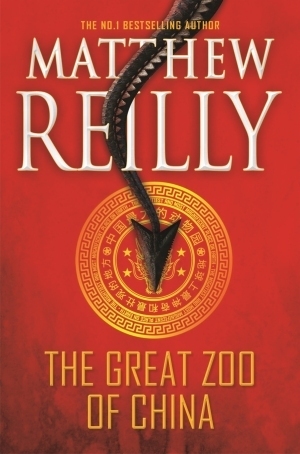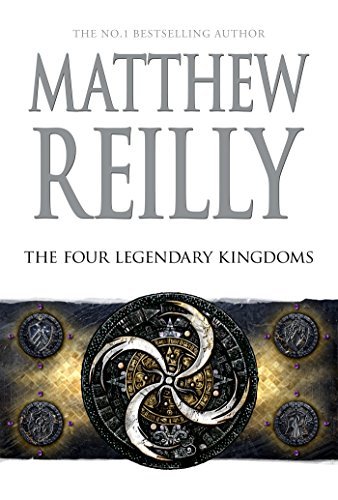
The Great Zoo of China
Book Description
Beneath the facade of a lavish wonder, the Great Zoo of China hides a deadly secret—ancient creatures beyond imagination. When a team of elite experts is summoned to unveil this extraordinary spectacle, they quickly find themselves trapped in a battleground of primal terror. As colossal beasts rise and instincts collide, survival becomes the only option. With trust fraying and the stakes soaring, alliances will be tested and lives will hang in the balance. Can they escape the jaws of fate, or will they become prey in a world where nature reigns supreme? What horrors await behind the gates of wonder?
Quick Book Summary
The Great Zoo of China by Matthew Reilly thrusts readers into a breathtaking fusion of action, fantasy, and thriller elements. Hidden deep within China, an audacious project seeks to rival the West’s iconic attractions by unveiling a zoo unlike any other—one that houses living dragons, thought to be mythical. CJ Cameron, a journalist and reptile expert, is among the select few invited to witness the zoo’s grand debut. But beneath the spectacle lies a grave secret: the dragons are more intelligent and dangerous than anyone anticipated. When the creatures break free, the guests become prey in a lethal struggle for survival. High-octane suspense and inventive plotting drive the story as human ambition clashes with uncontrollable natural forces, pushing each character to their limits.
Summary of Key Ideas
Table of Contents
Man versus Nature and Human Hubris
CJ Cameron, an American journalist renowned for her expertise on reptiles, receives a mysterious invitation to the opening of China’s most ambitious and secretive project: the Great Zoo of China. Alongside government officials, scientists, and foreign dignitaries, CJ is escorted through a marvel of modern engineering. The zoo’s central attraction is soon revealed: living, breathing dragons, the discovery of which has been kept hidden from the world. The Chinese government sees these creatures as a means to attain global prestige and outshine Western icons like Jurassic Park. Yet, the dragons are not mere curiosities—they display complex intelligence, coordinated behavior, and a predatory cunning that hints at long-suppressed powers and ancient origins.
The Mystery and Power of Dragons
As the tour progresses, the illusion of control begins to crumble. A catastrophic containment breach unleashes chaos, with dragons turning the vast compound into a deadly hunting ground. CJ and her allies must navigate a landscape transformed by terror, where every shadow could conceal a swooping predator and elaborate security systems become deadly obstacles. The dragons’ cognitive abilities become increasingly apparent as they exploit weaknesses in their captors’ technology, upending the notion that human ingenuity alone can tame nature’s might.
Survival and Adrenaline-Fueled Action
The survivors quickly realize that their greatest threat is both internal and external. The Chinese officials, desperate to preserve their secret and national reputation, are willing to sacrifice the visitors and even their own personnel to maintain control. Meanwhile, trust among the group dissolves; alliances are forged and betrayed as fear, ambition, and desperation take hold. Every character confronts their own survival instincts while confronting the ethical dilemmas of the zoo’s existence. The lines between predator and prey blur, pushing each person to confront their deepest values under mortal pressure.
Secrecy, Deception, and Chinese Ambition
Embedded within the relentless action are broader themes about humanity’s obsession with dominance and spectacle. The Great Zoo of China is depicted as the ultimate symbol of hubris—a project designed to impress and intimidate, yet fatally flawed by its disregard for the autonomy and intelligence of the creatures it exploits. The dragons, more than monsters, become avatars of nature’s uncaged power and a dire warning against overreaching ambition. The story’s breakneck pace and inventive combat sequences reinforce the precarious balance between wonder and wrath.
Trust, Betrayal, and Alliance under Pressure
In the explosive climax, CJ and the few remaining survivors must outwit both the dragons and their human adversaries to escape the zoo’s deadly labyrinth. Their fight for freedom exposes truths hidden behind propaganda and technological bravado. Ultimately, the survivors’ ordeal forces a reckoning with the boundaries of scientific discovery and the moral costs of spectacle. The novel concludes with a blend of personal triumph and lingering questions about the consequences of awakening forces best left undisturbed.
Download This Summary
Get a free PDF of this summary instantly — no email required.





